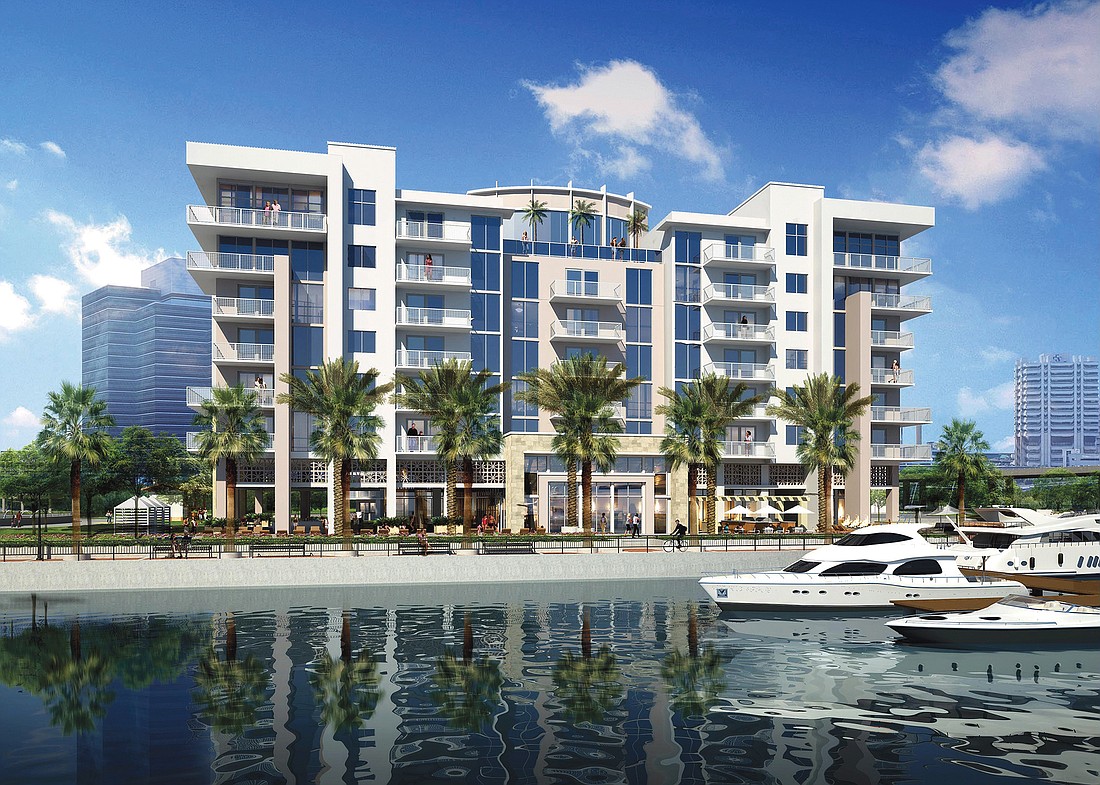
Miami-based Related Group requests another $1 million in tax refunds for its proposed RD River City Brewery apartments Downtown because of city-recommended design changes and the increased cost of materials.
A Downtown Investment Authority board committee is scheduled to vote April 16 on proposed updates to Related Group’s term sheet that increases the project’s Recapture Enhanced Value Grant from $11.9 million to $12.99 million.
The larger tax refund would bring the city’s total investment in the proposed Southbank apartments to $18,274,679, according to a DIA staff report released April 9.
Related Group estimates its plan to demolish the River City Brewing Co. restaurant at 835 Museum Circle and redevelop the site will cost $99.16 million, the report says.
That’s up $6.84 million from the $92.32 million the developer projected in November.
Related Group also told DIA officials it will reduce the number of apartments from 335 to 327 and decline to repair one of the docks at the site.
Both changes are allowed under the initial agreement approved by the DIA board last year.
Related Group and Miami-based architect MSA Architects redesigned the apartments after feedback from the Downtown Development Review Board and DIA staff that it did not fit “contextually” along the St. Johns River.
Design changes
DIA officials said in its report that documents from RD River City Brewery’s prospective general contractor, Balfour Beatty of Dallas, and MSA show the design review led to these changes:
• An additional courtyard on the park side of the project that increased the building’s outer exterior layer and reduced its efficiency.
• Stepping at the eighth level to create rooftop amenity lounges.
• An increase in the glass area for contemporary aesthetics.
• Garage enhancements.
• Ground-level enhancements for building entrances, residential stoops and amenities for pedestrian integration between the building, Friendship Park and the Southbank Riverwalk.
• Architectural accents on all sides of the building.
The $99.16 million project cost increases the amount eligible for the property tax incentive from $75.01 million to $82.49 million. That boosts the city’s total refund to Related Group by about $1.09 million.
The grant’s structure of a 20-year, 75% refund on the Southbank property’s tax growth is unchanged.
In addition to the REV grant, the public incentive package has $5.277 million in completion grants, site infrastructure work and lease revenue loss.
That includes $1 million for the completion of a restaurant the DIA asked Related Group to build next to Friendship Park and soil stabilization for the apartment’s foundation.
The public investment would provide money to rebuild the 29-slip public marina, relocate a boat fuel tank and repair a public boat ramp at the site.
The remaining money represents the lease revenue and value the city will lose when it releases the property.
The change to the deal would reduce the taxpayer return on investment in the project from $1.05 for every $1 spent to $1.04, according to the DIA report.
The city owns the River City property but Related Group also is negotiating with site leaseholder Maritime Concepts.
The developer plans to buy Maritime’s interest in the property and buy out the remaining 77 years in its long-term land lease with the city to build the eight-story apartment building and 500-space parking garage.
The full DIA board could vote on the new incentive deal at its April 21 meeting but will have to be approved by City Council before Related Group receives the incentives.
DIA CEO Lori Boyer said she wants to file legislation with Council before the end of April.
Lumber costs rise
Boyer said April 1 that Related Group is seeing higher cost of building materials since its proposal to the DIA was first submitted in October — specifically lumber prices.
Fortune.com reported March 31 that U.S. lumber prices are up 171% since the onset of the pandemic.
According to the business magazine, lumber set an all-time price record in March at $1,044 per thousand board feet.
Lumber production also is at a 13-year high as demand continues to increase, according to Fortune. At the onset of the pandemic in March 2020, prices were near $381.